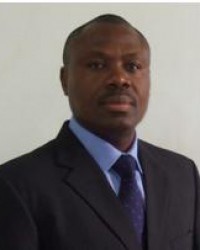
Mr Theophilus Ahwireng, Chief Executive Officer of the Ghana Petroleum Commission, has tasked financial institutions and Small and Medium Enterprises (SMEs) to devote time and resources for research.
This, he said, would provide them with better understanding of issues to enable them to expand their businesses and deliver quality services to their clients.
According to him, there was enough evidence that research was critical for the growth of every sector of an economy, hence the need to give it the needed attention to help companies to gain deeper understanding and knowledge about their product and also understand the consumer behaviour of people.
Mr Ahwireng, who was addressing a networking session for financial institutions and SMEs in the oil and gas and energy sectors, said Ghana should not be a mere recipient of incentives in the oil and gas industry.
Rather, there must be extensive support for local enterprises who wished to operate in these sectors to be able to actively engage and compete with other multinational companies in the oil and gas and energy sectors for maximum benefits.
He said SMEs had been identified as major stakeholders in Ghana’s development, because they provided a wider range of employment opportunities for the citizenry and among other benefits, contributed immensely to the Gross Domestic Product (GDP) of the country.
Therefore, he said, their presence in the oil and gas and energy sectors of the country would lead to the creation of more job opportunities, particularly, the youth to help reduce the unemployment rate.
He, however, said in spite of the contributions, SMEs were confronted with several challenges, including lack of access to funding, lack of capacity, poor research abilities, lack of focus, as well as low levels of integrity, which retarded their growth.
Mr Ahwireng urged SMEs to focus on one area instead of being the “jack of all trades”, which sometimes led to their collapse.
He also appealed to financial institutions to identify potential SMEs, collaborate with them, understand their work and create the environment and opportunity for them to explore the numerous facilities and services available at the banks to finance their businesses to expand.
“Do not look only at the profit on lending and borrowing, but you must help nurture these companies to grow to the levels that they can also compete favourably with their counterparts both at the domestic and international levels,” he said.
The networking session, which was organised by PYXERA Global, implementers of the Ghana Supply Chain Development Programme, a USAID-funded programme, was to build the capacities of SMEs in accessing financial support as a necessary leverage for doing competitive business in the oil and gas and energy industry.
Dubbed: “The Speed Dating”, the programme brought together willing and able financial institutions and SMEs to discuss challenges as well as available prospects that would afford both of them the opportunity to explore areas of possible financial collaboration and potential assistance towards enhancing business growth.
Dr Mustapha Ahmed, Acting Minister of Trade and Industry, said the industrial landscape was dominated by the SMEs, who accounted for about 90 per cent of enterprises, contributing to about 60 per cent of employment and about six per cent to the GDP of the country.
He said as SMEs were perceived by the banks as high risk in the sector, there was also the issue of collateral requirements, which they could not fulfill.
Additionally, he said, the issue of inexperienced bank staff in matters related to Micro-finance and other issues, had been identified as factors for their low levels to access funding.
He said the Government would continue to pursue programmes and policies, which would help to reduce the cost of doing business.
Ms Barbara Gbologah Quaye, the Country Director of PYXERA, assured SMEs that they would help them create and capture values in their fields of work and also help to develop potentials in their businesses and provide excellent service.